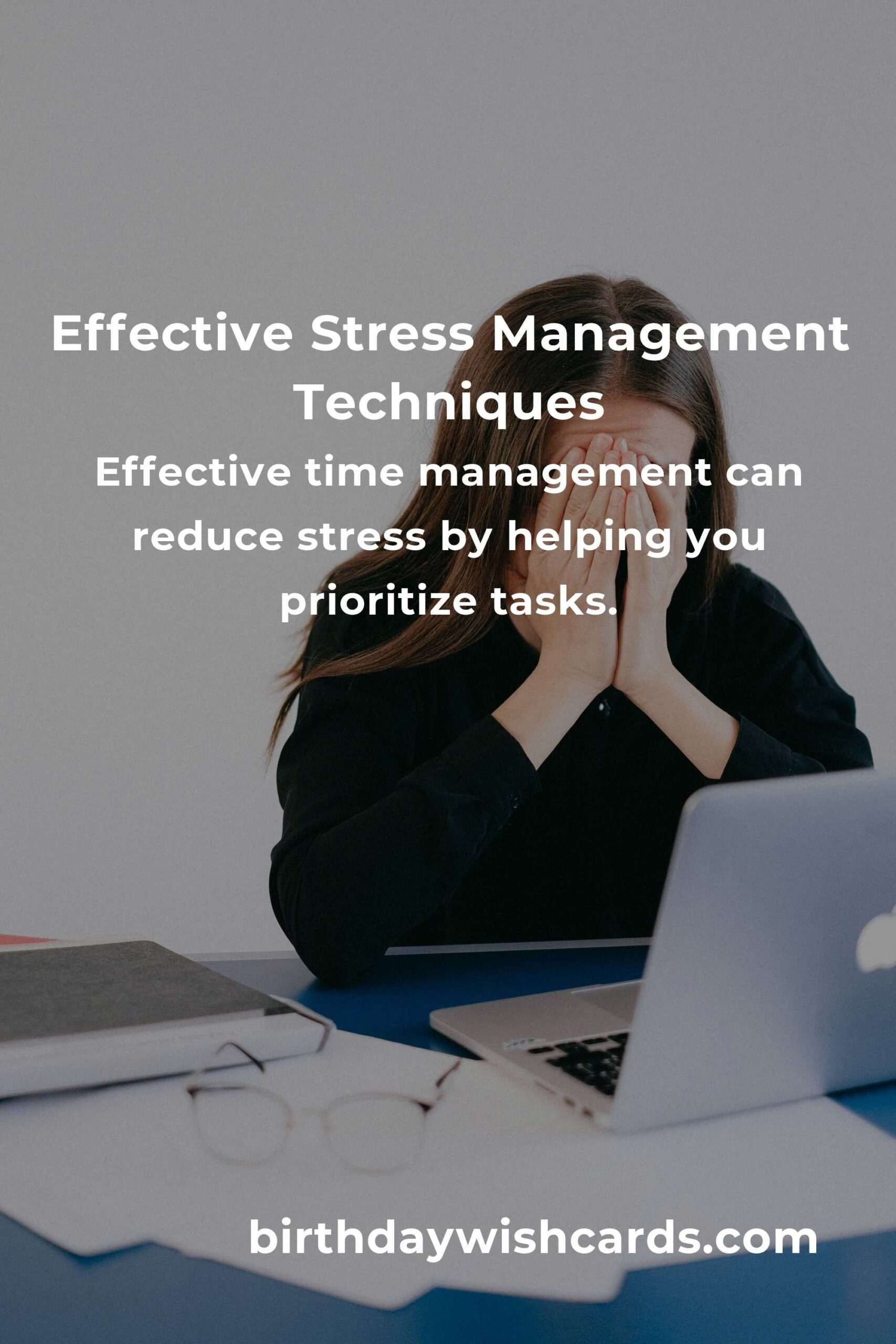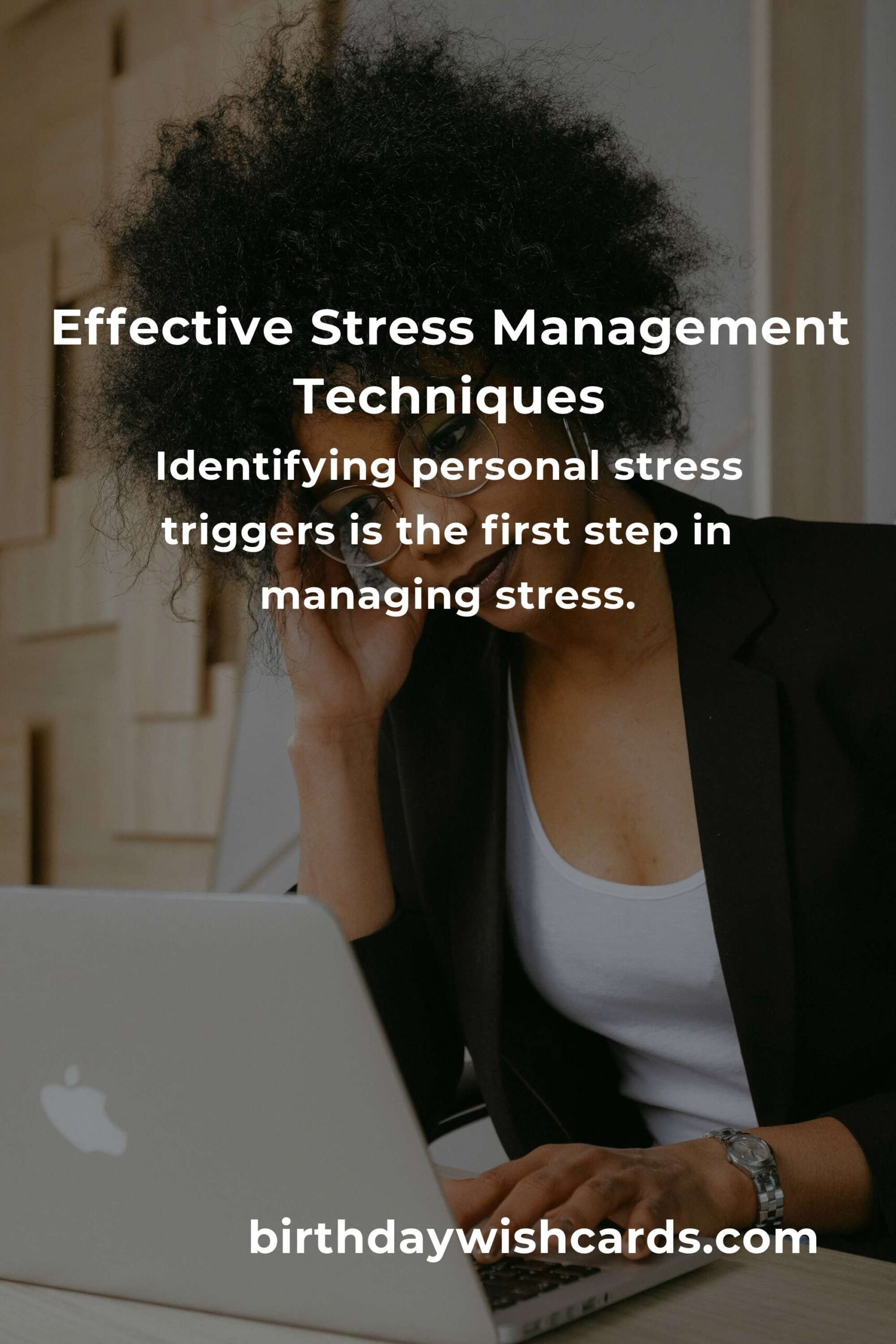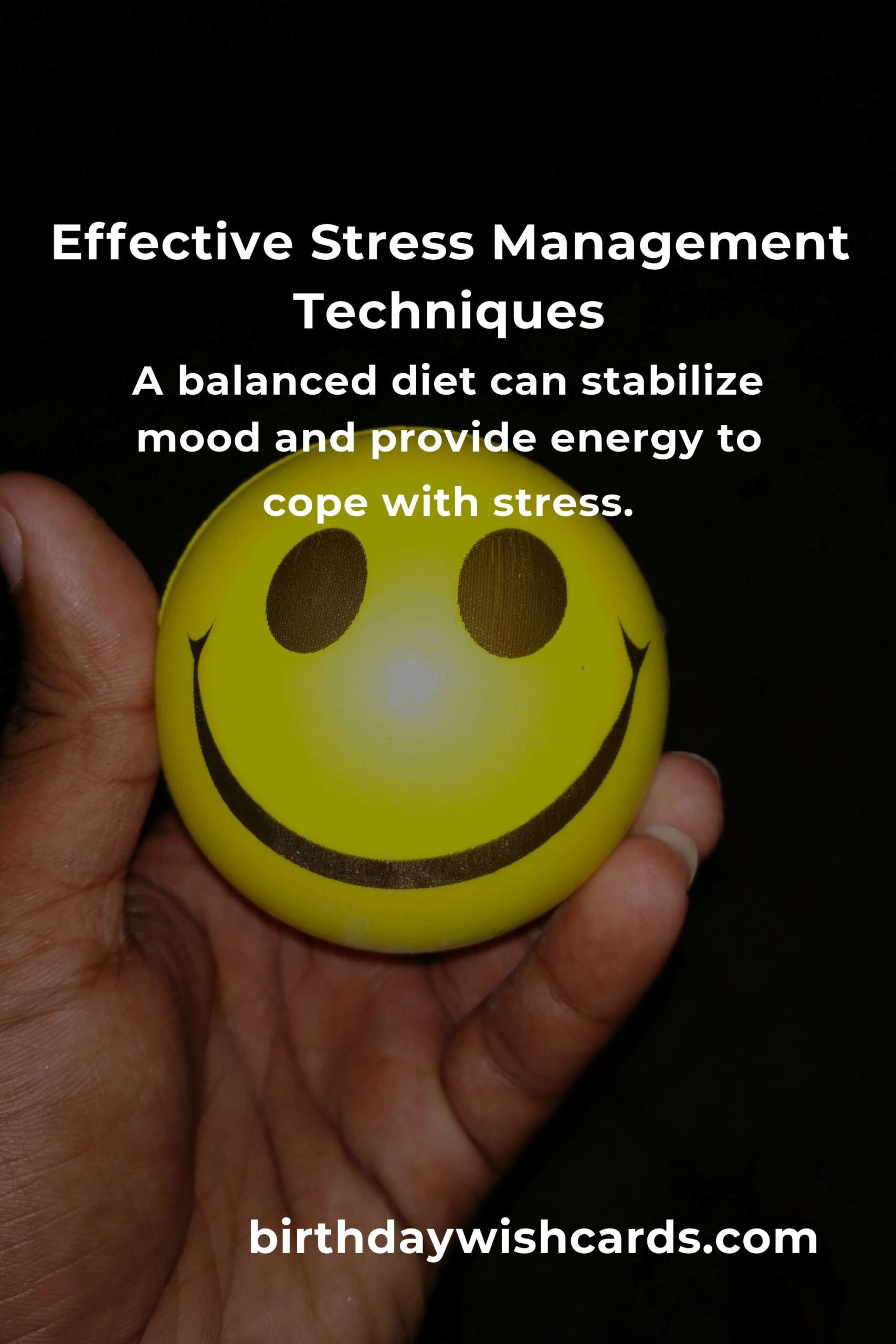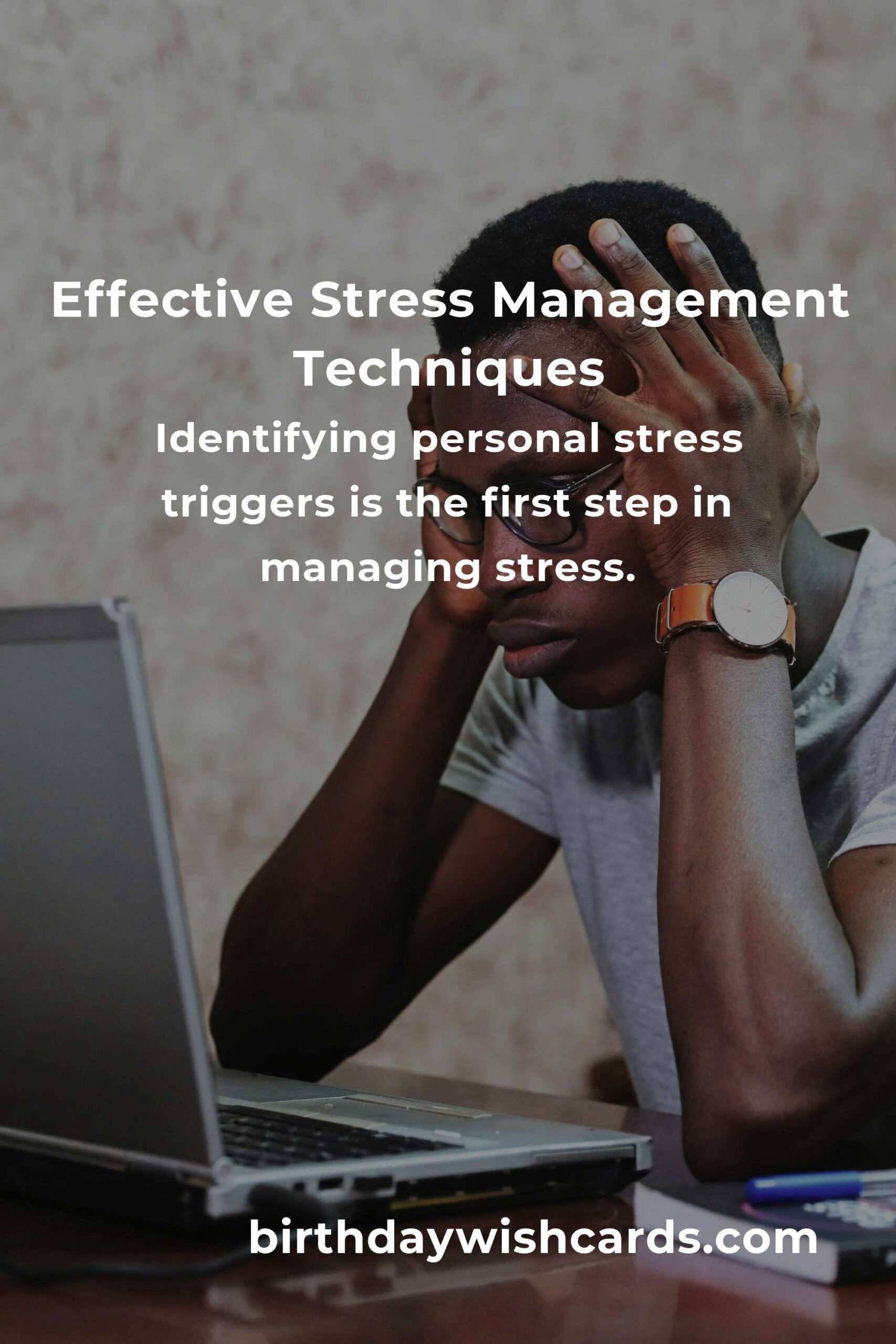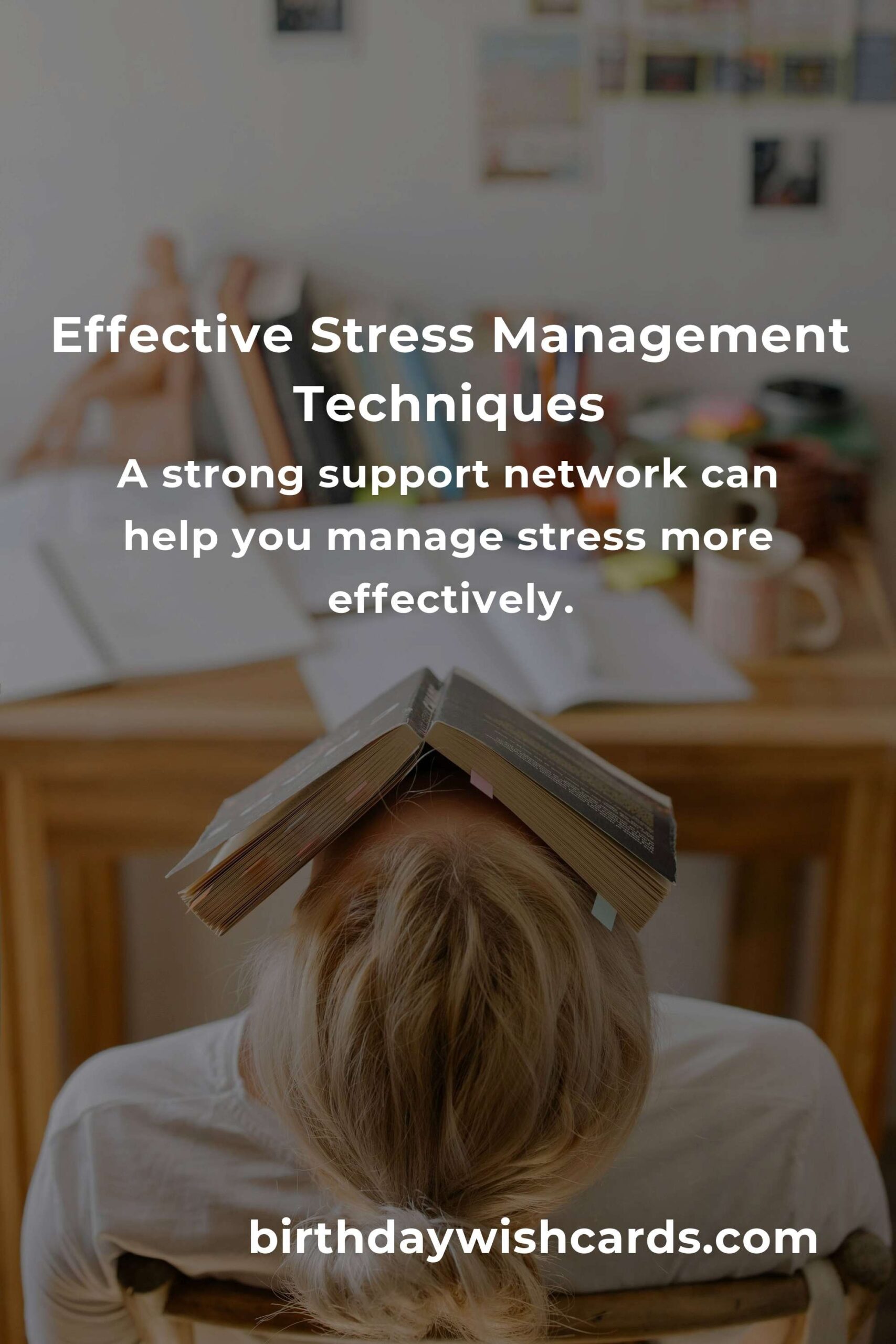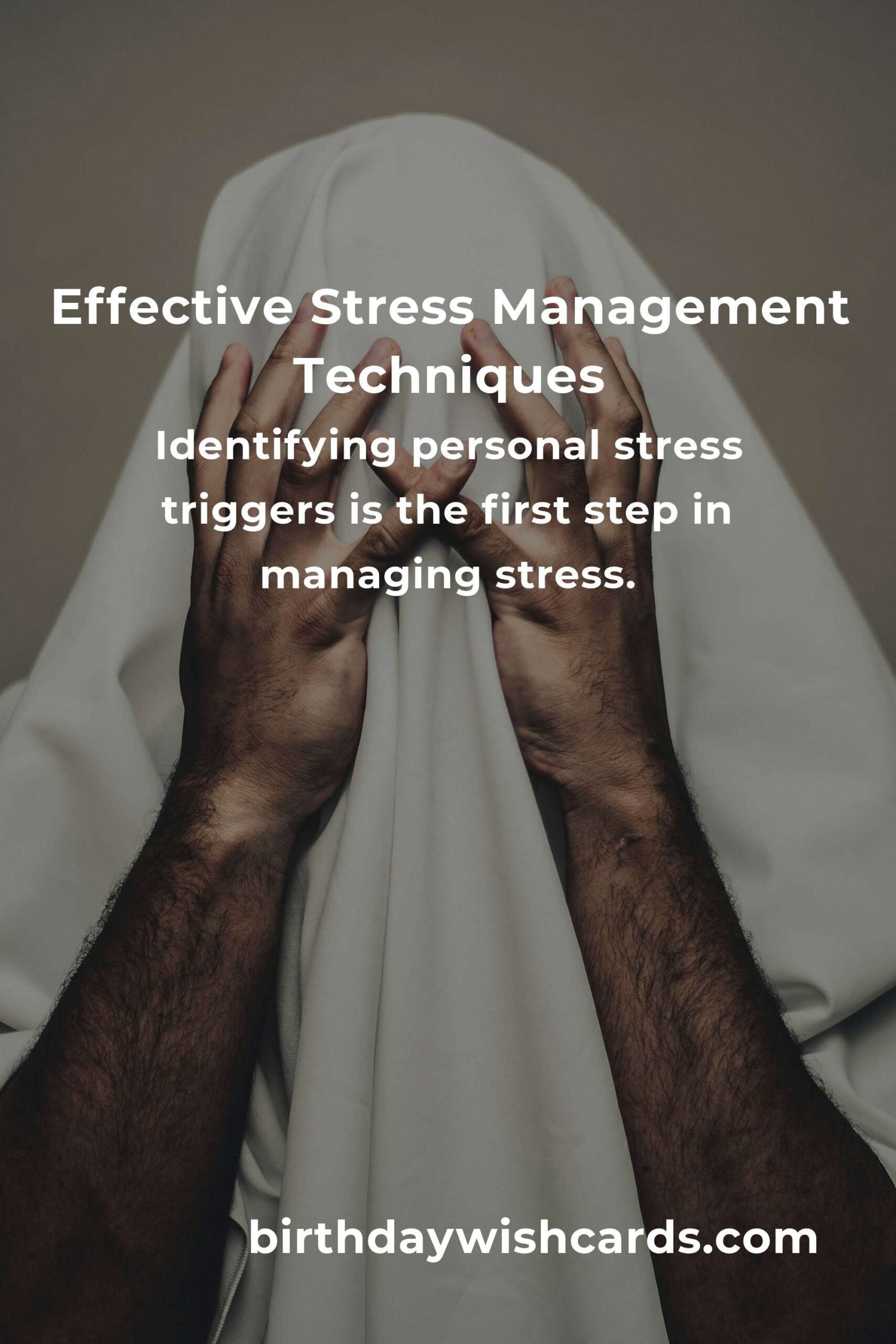
In today’s fast-paced world, stress has become a common part of our daily lives. While a certain level of stress can be beneficial, chronic stress can have serious implications for our mental and physical health. Learning effective stress management techniques is crucial for maintaining a balanced and healthy lifestyle.
Understanding Stress
Stress is the body’s natural response to challenging situations. It triggers the release of hormones like adrenaline and cortisol, preparing the body to respond to a perceived threat. However, when stress becomes chronic, it can lead to health issues such as anxiety, depression, heart disease, and a weakened immune system.
Identify Your Stress Triggers
The first step in managing stress is identifying your personal stress triggers. These could be work-related pressures, financial concerns, relationship issues, or even daily commutes. Keeping a stress diary can help you pinpoint common stressors and understand how they affect you.
Practice Mindfulness Meditation
Mindfulness meditation is a powerful tool for stress management. By focusing on the present moment and acknowledging your thoughts and feelings without judgment, you can reduce stress and improve your emotional well-being. Regular practice can lead to lasting changes in the brain, enhancing your ability to manage stress effectively.
Exercise Regularly
Physical activity is one of the most effective ways to combat stress. Exercise releases endorphins, the body’s natural mood elevators, and can significantly reduce stress levels. Whether it’s a brisk walk, a yoga session, or a workout at the gym, incorporating regular exercise into your routine can help you manage stress better.
Adopt Healthy Eating Habits
Your diet plays a crucial role in managing stress. Consuming a balanced diet rich in fruits, vegetables, whole grains, and lean proteins can stabilize your mood and provide the energy needed to cope with stress. Avoid excessive caffeine and sugar, as they can exacerbate stress symptoms.
Get Adequate Sleep
Sleep is essential for stress management. Lack of sleep can increase stress levels and make it harder for you to cope with daily challenges. Aim for 7-9 hours of quality sleep each night by establishing a regular sleep schedule and creating a restful environment.
Build a Support Network
Having a strong support network can help you manage stress more effectively. Surround yourself with positive and supportive people who can provide guidance and encouragement. Don’t hesitate to seek professional help if you feel overwhelmed by stress.
Time Management Techniques
Effective time management can reduce stress by helping you prioritize tasks and avoid last-minute rushes. Use techniques like to-do lists, prioritization, and setting realistic deadlines to manage your time efficiently and reduce stress.
Practice Relaxation Techniques
Incorporate relaxation techniques such as deep breathing exercises, progressive muscle relaxation, or visualization into your daily routine. These techniques can help calm your mind and reduce stress levels.
Conclusion
Stress is an inevitable part of life, but with the right strategies, you can manage it effectively. By understanding your stress triggers, practicing mindfulness, exercising, eating well, and seeking support, you can reduce stress and lead a calmer, more balanced life. Remember that managing stress is a continuous process and requires effort and commitment.
Stress is the body’s natural response to challenging situations. Chronic stress can lead to health issues such as anxiety and depression. Identifying personal stress triggers is the first step in managing stress. Mindfulness meditation is a powerful tool for stress management. Exercise releases endorphins and can significantly reduce stress levels. A balanced diet can stabilize mood and provide energy to cope with stress. Adequate sleep is essential for managing stress effectively. A strong support network can help you manage stress more effectively. Effective time management can reduce stress by helping you prioritize tasks. Relaxation techniques can help calm your mind and reduce stress levels.
#StressManagement #Mindfulness #HealthyLiving #Wellness #MentalHealth


